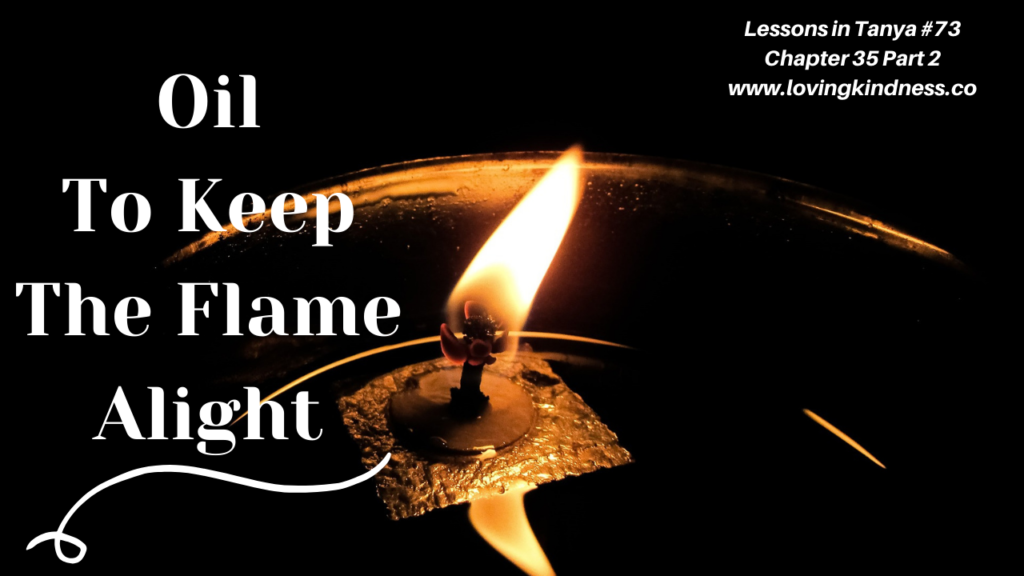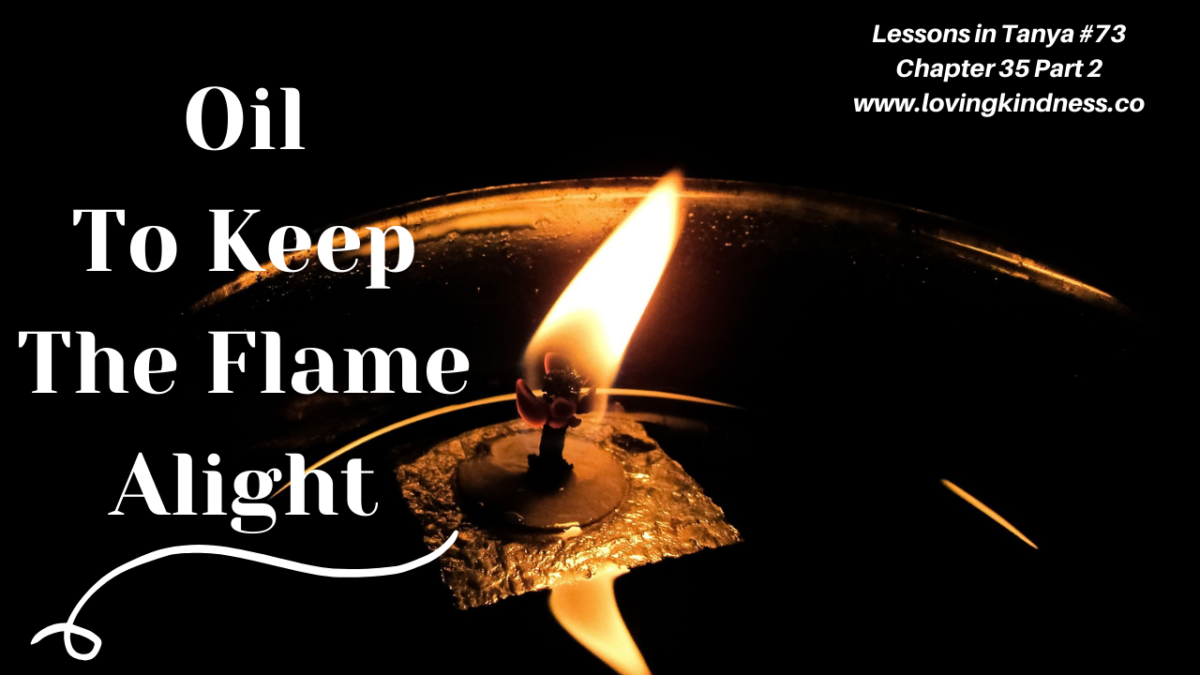
We do a summary from our previous lesson in Tanya #72. We begin with Chapter 35. Though there is a slight shift in our journey through this wonderful work, it is really just a continuation from our previous themes.
The Alter Rebbe begins the chapter with two ideas that he will expand upon:
1. The word “La’asoto” – “to do” – that the observance of Mitzvot is an easy thing to do.
2. Who are the Beinonim really — in the sense of – why have them been put into this world?
Discussing point two, the Alter Rebbe questions the purpose of the Beinoni. Why does such a soul descend into a body only to have to engage itself in an endless effort of trying to keep the evil from revealing itself. His entire job seems to be centered on subjugating evil – yet he never succeeds. If so – why does God put this soul into a body to engage in a fruitless exercise?
We can understand the Tzadik who turns evil into good and sees the results of what he does but the Beinoni has no real goal other than battling the evil inside him all his life.
The Alter Rebbe begins his insight into the life of the Beinoni with a quote from King Solomon who said that, “The wise man’s eyes are in his head”. Noting the obvious redundancy of the question (everyone’s eyes are in their heads!), the Alter Rebbe begins a beautiful explanation from a quote in the holy Zohar which tells us that the Shechinah dwells over the head of a person. The body is the wick and some sort of oil is needed to keep the flame of the Shechinah burning continually.
The Alter Rebbe explains this analogy to the idea that a person must feed the wick (the body) with good deeds and Mitzvah performance (the oil) in order to keep the flame burning.
In fact, Mitzvot and good deeds are the very essence of God in this world — without any type of interference or diminution of His light at all. When we engage ourselves in Mitzvah observance, we attach ourselves completely to God as if there is nothing intervening.


